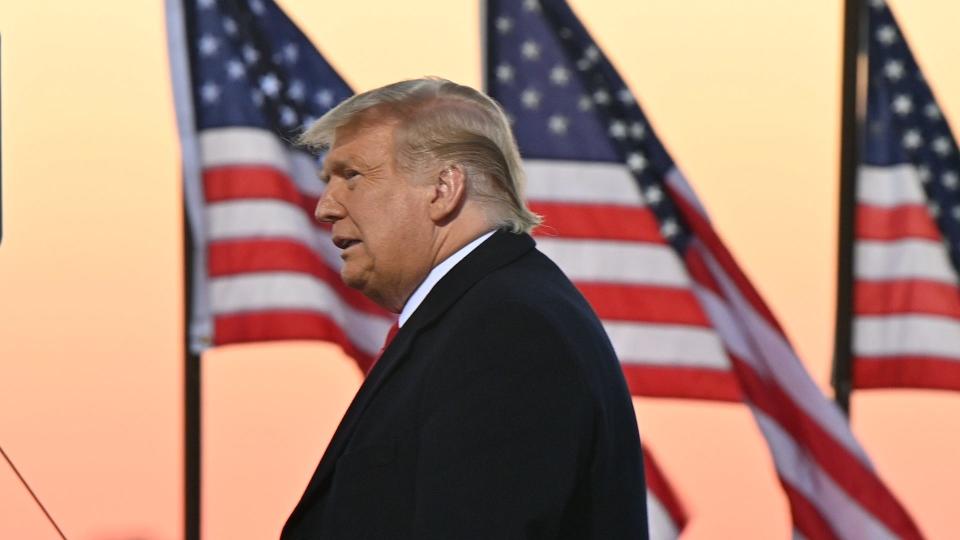Supreme Court declines to weigh in for now on Trump immunity claim
- Oops!Something went wrong.Please try again later.
WASHINGTON − The Supreme Court on Friday sidestepped the explosive question of whether former President Donald Trump may claim immunity from criminal charges tied to his alleged interference in the 2020 election, but the legal wrangling over the issue is far from over.
In one sense, the decision was a win for Trump, who had opposed an extraordinary effort by special counsel Jack Smith to have the Supreme Court decide the question of Trump's immunity now. On the other hand, the same case will almost certainly return to the Supreme Court in coming months. The issue will now first be decided by a federal appeals court in Washington.
Smith secured a four-count indictment against the former president in August but before a lower court could consider the charges at trial, Trump claimed he was immune from prosecution.
Though the case raises fundamental questions about presidential immunity, the motivations are likely simpler: Smith wants a trial as soon as possible and Trump would presumably like to delay one until after the election. At that point, a President Trump in 2025 could more easily swat away his legal troubles by directing the Justice Department to dismiss the cases.
Neither Trump nor the Justice Department immediately responded to a request for comment. Trump posted on social media that he looked forward to making his arguments in the court of appeals.
The Supreme Court announced its decision without comment. There were no noted dissents.
Trump is currently the frontrunner for the GOP nomination and is leading President Joe Biden in many general election polls.

U.S. District Judge Tanya Chutkan on Dec. 1 rejected a series of arguments from Trump to have the case dismissed. He has argued, for example, that he can't be prosecuted because his alleged actions were "at the heart of his official responsibilities as president." Trump appealed that decision, a move that appeared to jeopardize the start of a trial in that case, which is currently scheduled to begin March 4.
The case now returns to the U.S. Court of Appeals for the District of Columbia Circuit, which has already scheduled a hearing for Jan. 9. Whatever the appeals court decides could be appealed again to the Supreme Court.
Trump's allies cheered the move as a major win and his critics worried it could signficantly pushback the start of the trial. But the most likely outcome is that the same issue will be back at the Supreme Court in early 2024.
"All this does is kick things back to the D.C. Circuit, which is already set to hear argument on January 9 − and will likely rule soon thereafter," Steve Vladeck, a law professor at the University of Texas, posted on social media. "Then, we go back to the Supreme Court."
The immunity issue is separate from a major 4-3 decision this week by Colorado's Supreme Court that found Trump disqualified himself from a second term by inciting violence at the U.S. Capitol on Jan. 6, 2021. Trump has vowed to appeal the Colorado decision to the U.S. Supreme Court "swiftly," forcing the nine justices to juggle multiple high-profile casesinvolving the former president.
Trump has repeatedly insistedthat all of the cases against him are politically motivated attacks.
Contributing: David Jackson
This article originally appeared on USA TODAY: Supreme Court steers clear of historic Trump immunity claim - for now

